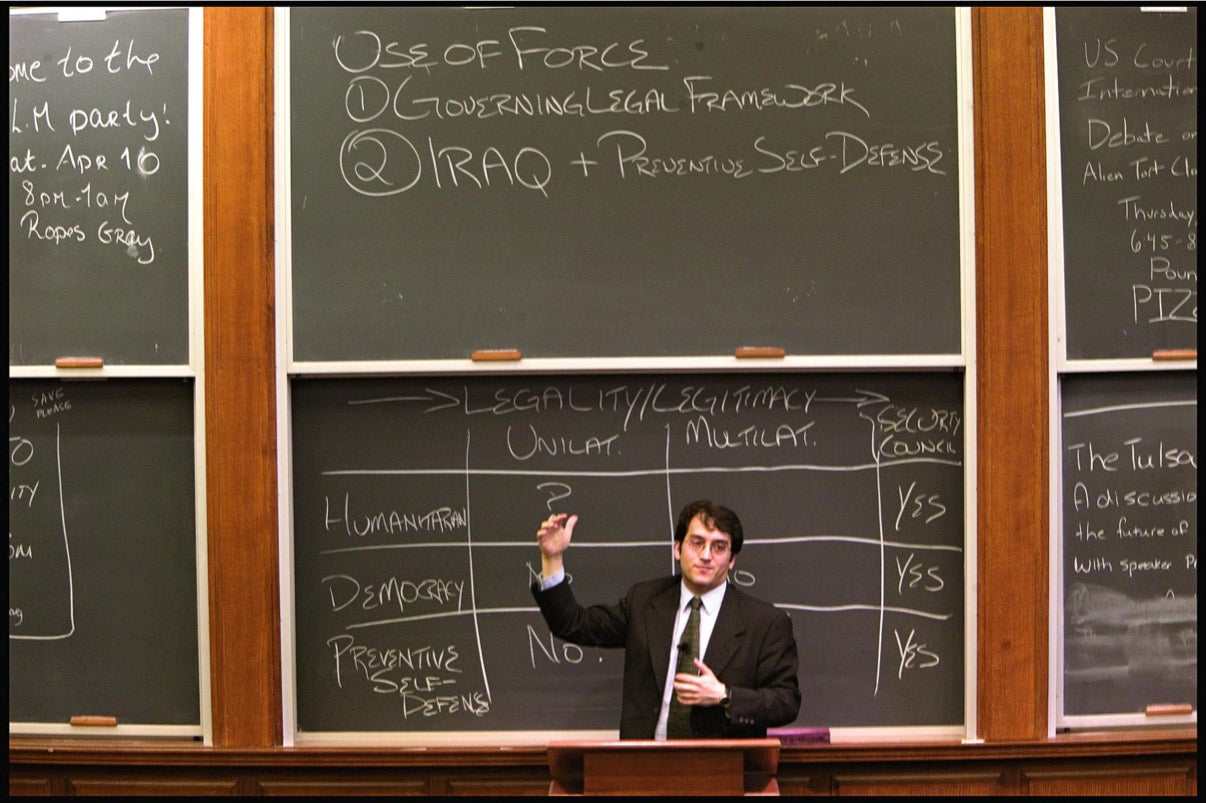In April, during one of the most violent periods of fighting in Iraq since the fall of Saddam Hussein’s regime, Assistant Professor Ryan Goodman’s Public International Law class struggled to determine when the use of force is legal and what to do when force may be illegal yet legitimate.
Goodman noted that the answers are never as clear as they may seem and often have unintended consequences. For example, he said, if the war in Iraq were illegal, then the no-fly zones that protected the Kurds in the north and the Shiites in the south were also illegal.
When Goodman discussed whether the rules of war should be more or less restrictive for humanitarian intervention, one student expressed his dismay at the prospect of fewer restrictions: “I think it’s a very pernicious development. … The notion that military planners may sacrifice lives on the basis of who they are fighting is foreign to me.” But after a discussion of the U.S.-led wars in Iraq, the NATO bombing of Kosovo and West African military operations in Liberia, the class concluded that the use of force is often simultaneously illegal and legitimate, a troubling dichotomy for international law advocates as well as law students.
